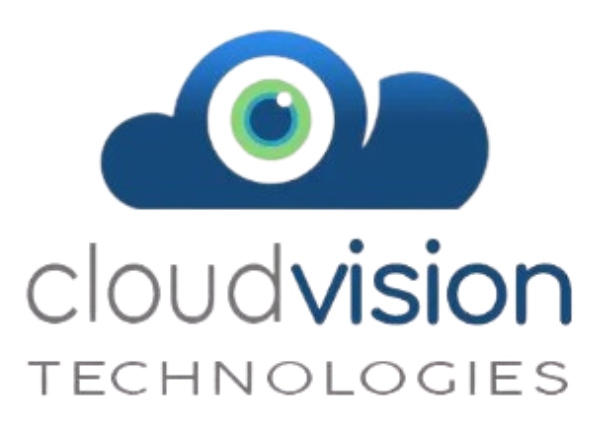A Clear Path with Jersey Recovery Center
If you or a loved one are seeking treatment for substance use, you’ve already taken one of the most important steps—deciding that it’s time for change. But for many individuals in New Jersey, the next step—figuring out how to pay for treatment—can feel confusing or even discouraging.
At Jersey Recovery Center (JRC), we believe that recovery should never be out of reach because of financial uncertainty. Our goal is to help you understand how insurance for substance use treatment in New Jersey works, what your options are, and how we can help you navigate every detail so you can focus on what really matters: your recovery.
Why Insurance Matters in Recovery
Addiction treatment isn’t just about detoxing or attending therapy sessions—it’s about building the foundation for long-term recovery. Most people don’t realize that insurance providers in New Jersey are legally required to cover substance use disorder (SUD) treatment under both federal and state parity laws.
This means your insurance must treat SUD care the same way it treats other medical conditions. Whether it’s Intensive Outpatient Program (IOP) care, Medication-Assisted Treatment (MAT), or ongoing support, you are entitled to coverage when treatment is medically necessary.
Still, understanding exactly what your plan covers can be tricky. Every insurer has unique rules, authorizations, and billing processes. That’s why JRC has a dedicated insurance verification team—so you don’t have to go through it alone.
How Insurance Works for Addiction Treatment in New Jersey
Insurance coverage for substance use treatment depends on several key factors. Understanding these can make a huge difference in planning your recovery journey.
Your Type of Insurance Plan
Most people in New Jersey are covered by one of the following:
- Private or employer-sponsored insurance (e.g., Horizon Blue Cross Blue Shield, Aetna, Cigna, UnitedHealthcare)
- Medicaid (NJ FamilyCare)
- Medicare
- ACA marketplace plans purchased through Get Covered NJ
Each plan has its own network, coverage levels, and requirements. Some may cover outpatient programs in full, while others may require copayments, deductibles, or pre-authorization.
Under the Affordable Care Act, all marketplace plans are required to include coverage for Substance Use Disorder Services, meaning you can’t be denied treatment for addiction. (Healthcare.gov – Substance Use Disorder Coverage)
Medical Necessity
For insurance to approve treatment, your provider usually must show that the service is medically necessary. That determination is based on criteria such as:
- Severity and duration of your substance use
- Risk of medical complications or withdrawal
- Prior treatment attempts
- Functional impact on daily life
Most insurers rely on the American Society of Addiction Medicine (ASAM) guidelines to decide which level of care is appropriate. These levels range from early intervention and outpatient care to intensive outpatient and residential treatment.
At JRC, our clinical team provides thorough assessments that meet insurer standards, helping you access the right level of care quickly and efficiently.
In-Network vs. Out-of-Network Providers
The difference between in-network and out-of-network can significantly affect cost.
- In-Network Providers have agreements with your insurance company. You’ll usually pay lower copays, smaller deductibles, and get faster approval.
- Out-of-Network Providers may still be covered, but reimbursement rates and authorization requirements differ.
At Jersey Recovery Center, we work with most major insurance carriers in New Jersey and will verify your benefits before treatment begins. We’ll tell you exactly what’s covered and what, if anything, you might owe out-of-pocket—no surprises.
Length of Treatment & Utilization Reviews
Insurance companies typically approve treatment in “blocks” or time periods (for example, 2–4 weeks at a time). As you progress, your care team provides updates showing your continued need for treatment.
This is known as a utilization review, and it determines whether your plan will extend coverage. At JRC, our administrative team handles all reviews, reports, and documentation to ensure continuity of care without unnecessary gaps.
What Services Insurance May Cover
While every plan is different, most insurance providers in New Jersey will cover one or more of the following addiction-treatment services when medically necessary:
- Intensive Outpatient Programs (IOP): Structured daytime or evening programs offering therapy, education, and relapse prevention while allowing you to live at home.
- Outpatient Counseling: Individual or group sessions for ongoing recovery support.
- Medication-Assisted Treatment (MAT): FDA-approved medications like Suboxone or Vivitrol combined with counseling to reduce cravings and withdrawal symptoms.
- Relapse Prevention Programs: Continued care to maintain sobriety after completing a structured program.
- Case Management and Support Services: Coordination between medical professionals, insurance providers, and recovery specialists to streamline care.
Our admissions team can review your benefits and match your coverage to the appropriate treatment level.
Step-by-Step: Verifying Your Coverage
If you’re unsure about your benefits, here’s how to verify insurance for substance-use treatment in New Jersey—either on your own or with JRC’s help.
Step 1: Call Your Insurance Company
Ask questions like:
- Does my plan cover outpatient addiction treatment or IOP?
- What percentage of treatment costs are covered?
- Are there pre-authorization requirements?
- What are my copays, deductibles, or session limits?
- Is Jersey Recovery Center in-network with my plan?
Document every response—especially reference numbers or names of representatives.
Step 2: Let JRC Handle It
Prefer not to spend hours on the phone? JRC can handle this for you. Our insurance team will:
- Verify your benefits directly with your insurer
- Determine which services your plan covers
- Provide a detailed estimate of costs (if any)
- Manage the pre-authorization process from start to finish
We’ll communicate with you every step of the way—so you always know what’s happening.
Step 3: Gather Required Documents
To approve coverage, insurers often require:
- Proof of diagnosis or treatment recommendation
- Past treatment records (if any)
- A referral from a licensed New Jersey clinician (if your plan requires it)
Our staff can help you obtain or organize these documents quickly.
Step 4: Explore Payment Assistance
If your insurance doesn’t cover everything, or if you’re uninsured, we’ll help you explore additional options such as:
- Flexible payment plans tailored to your situation
- Sliding-scale fees based on income
- Referrals to state-funded programs through the New Jersey Division of Mental Health and Addiction Services (DMHAS)
No one should be turned away because of finances. JRC will help you find a solution.
Common Challenges—and How JRC Helps You Overcome Them
Even with strong coverage, many people face obstacles when seeking approval. Here’s how we help you overcome them:
Denied Claims or Delays:
We appeal denied claims and provide any missing documentation to ensure insurance honors its coverage obligations.
Confusing Billing Codes:
Insurance billing for addiction treatment can be complex. Our staff uses precise coding and communicates directly with payers to prevent errors.
Limited Authorizations:
We advocate for extended coverage by submitting progress updates that clearly demonstrate continued medical necessity.
Unclear Out-of-Pocket Costs:
Before you begin treatment, you’ll receive a clear breakdown of what’s covered, what’s pending authorization, and any costs you may owe—so there are no surprises later.
With JRC, you don’t have to navigate this system alone. We handle the back-and-forth while you focus on recovery.
Your Rights Under New Jersey Law
New Jersey has taken important steps to protect individuals seeking substance-use treatment. Under the New Jersey Substance Use Disorder Treatment Act and related parity laws:
- Insurance companies cannot deny coverage for medically necessary substance-use treatment simply because it’s behavioral health.
- Pre-authorization rules must follow state standards for timeliness—usually within 24–72 hours.
- Patients have the right to appeal denials and request expedited reviews if care is urgent.
- Insurers must disclose their criteria for medical necessity upon request.
For more on these protections, visit NJ Department of Banking & Insurance.
Helpful Resources in New Jersey
If you’re researching coverage or need immediate help, these resources can guide you:
- Get Covered NJ – Official state marketplace for health insurance plans.
- NJ FamilyCare – Medicaid options for low-income residents.
- DMHAS Treatment Directory – State-approved treatment programs and financial aid.
- NJ 211 – Connects you to local recovery resources and community services 24/7.
- Substance Abuse and Mental Health Services Administration (SAMHSA) – National directory of licensed treatment facilities.
Choosing JRC: Where Insurance Meets Compassion
At Jersey Recovery Center, we know that insurance paperwork shouldn’t stand between you and recovery. From your first call to the day you complete treatment, our team walks beside you—handling verification, approvals, and billing—so you can fully commit to getting better.
Our programs include:
- Intensive Outpatient Programs (IOP) designed for flexibility
- Medication-Assisted Treatment (MAT) for long-term recovery support
- Relapse prevention and aftercare planning to maintain progress
We collaborate directly with insurers to make sure your treatment is accessible, transparent, and stress-free.
Take the First Step
Understanding insurance can feel like navigating a maze—but you don’t have to do it alone. Let Jersey Recovery Center help you take the guesswork out of coverage and start your recovery journey with clarity and confidence.
📞 Contact us today to verify your insurance benefits and begin treatment at Jersey Recovery Center—where recovery starts with understanding, and ends with hope.






